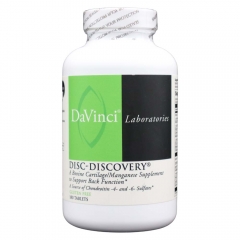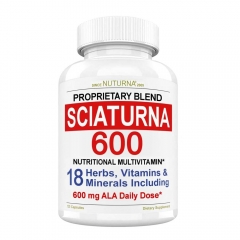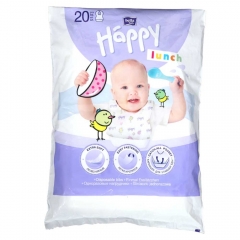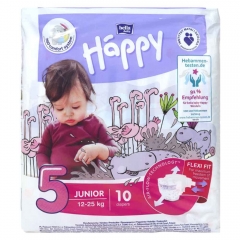-
 Thanh toán đa dạng, linh hoạtChuyển khoản ngân hàng, thanh toán tại nhà...
Thanh toán đa dạng, linh hoạtChuyển khoản ngân hàng, thanh toán tại nhà... -
 Miễn Phí vận chuyển 53 tỉnh thànhMiễn phí vận chuyển đối với đơn hàng trên 1 triệu
Miễn Phí vận chuyển 53 tỉnh thànhMiễn phí vận chuyển đối với đơn hàng trên 1 triệu -
 Yên Tâm mua sắmHoàn tiền trong vòng 7 ngày...
Yên Tâm mua sắmHoàn tiền trong vòng 7 ngày...

- Publisher:Johns Hopkins University Press; third edition (November 23, 2021)
- Language:English
- Paperback:488 pages
- ISBN-10:1421442345
- ISBN-13:978-1421442341
- Item Weight:2.15 pounds
- Dimensions:7 x 1.01 x 10 inches
- Best Sellers Rank:#699,168 in Books (See Top 100 in Books) #146 in Health Care Delivery (Books) #304 in Medical Ethics (Books)

Tính năng sản phẩm
• Highlight, take notes, and search in the book• In this edition, page numbers are just like the physical editionMô tả sản phẩm
Review
Drawing from considerable expertise and experience, the authors write in a clear and engaging style . . . Essentially, the handbook creates a framework of resources for those committees assessing their own work. The authors serve their audience well and this book is a valuable addition to the library of every healthcare ethics committee.
―Doody's Review Service
Straightforward writing, and generous use of case studies make it a book that any non-specialist with interest in the field would find compelling.
―American Reference Books Annual
A strong work based on meticulous research and the wisdom of years of experience . . . Highly recommended.
―Choice
Thick with useful information, this multifaceted handbook relays dispatches from the health care front . . . The authors have indeed met their goal and provided a needed resource.
―Metapsychology
A very useful background tool for introductory instruction in bioethics . . . Does an excellent job.
―Journal of Long Term Home Health Care
This easily readable, ethically astute book will be extremely useful to the providers in all clinical fields, not just those in pure medicine. It is a must-carry for all libraries covering health care services and human rights.
―Journal of Health Care for the Poor and Underserved
Product Description
How can dedicated health care ethics committees increase their effectiveness and demonstrate their value as essential moral resources for their organizations?
Among the most effective and increasingly valued resources in the health care decision-making process is the institutional ethics committee. The Joint Commission (TJC) accredits and certifies more than 19,000 health care organizations in the United States, including hospitals, nursing homes, and home care agencies. As a condition of accreditation, TJC requires health care organizations to have available a standing multidisciplinary ethics committee, composed of physicians, nurses, attorneys, ethicists, administrators, and interested lay citizens. Many of these committees are well meaning but may lack the information, experience, skills, and formal background in bioethics needed to effectively address the range and complexity of the ethical issues that arise in clinical and organizational settings.
Handbook for Health Care Ethics Committees was conceived in 2007 to address the myriad responsibilities assumed by ethics committees. Using sample cases and accessible language, Linda Farber Post and Jeffrey Blustein explored applied bioethics, including informed consent and refusal, decision making and decisional capacity, truth telling, care at the beginning and end of life, palliation, justice in and access to health care services, and organizational ethics.
In the third edition, Post and Blustein have thoroughly updated and reorganized the content and expanded the scope of the material, with special attention to changes in the health care landscape since the second edition was published in 2015. They also focus on communication between and among patients, care providers, and families, the demands of professionalism, the essential role that ethics committees can and should play, and how their effectiveness and value can be assessed. An entirely new chapter examines research ethics. The book also addresses the challenging ethical issues raised by the ongoing COVID-19 pandemic. This guide remains an essential resource for all health care ethics committee and their members.
Review
Hands down the best introduction to clinical bioethics, period. I wish every ethics committee member would read it, and it makes an excellent textbook in introductory bioethics courses as well.
―Alex Rajczi, Ph.D., Professor of Philosophy, Deborah and Kenneth Novack Professor of Ethics and Leadership, and George R. Roberts Fellow at Claremont McKenna College
Review
Hands down the best introduction to clinical bioethics, period. I wish every ethics committee member would read it, and it makes an excellent textbook in introductory bioethics courses as well.
-- Alex Rajczi, Ph.D.Review
"Drawing from considerable expertise and experience, the authors write in a clear and engaging style... Essentially, the handbook creates a framework of resources for those committees assessing their own work. The authors serve their audience well and this book is a valuable addition to the library of every healthcare ethics committee."
"Straightforward writing, and generous use of case studies make it a book that any non-specialist with interest in the field would find compelling."
"A strong work based on meticulous research and the wisdom of years of experience... Highly recommended."
"Thick with useful information, this multifaceted handbook relays dispatches from the health care front... The authors have indeed met their goal and provided a needed resource."
"A very useful background tool for introductory instruction in bioethics... Does an excellent job."
"This easily readable, ethically astute book will be extremely useful to the providers in all clinical fields, not just those in pure medicine. It is a must-carry for all libraries covering health care services and human rights."
Book Description
How can dedicated health care ethics committees increase their effectiveness and demonstrate their value as essential moral resources for their organizations?
About the Author
Linda Farber Post is a clinical ethicist and educator, formerly at Montefiore Medical Center and Albert Einstein College of Medicine.
Jeffrey Blustein is a professor of bioethics at Albert Einstein College of Medicine and a clinical ethicist at both the Einstein and Moses Divisions of Montefiore Medical Center.
- Mua astaxanthin uống có tốt không? Mua ở đâu? 29/10/2018
- Saffron (nhụy hoa nghệ tây) uống như thế nào cho hợp lý? 29/09/2018
- Saffron (nghệ tây) làm đẹp như thế nào? 28/09/2018
- Giải đáp những thắc mắc về viên uống sinh lý Fuji Sumo 14/09/2018
- Công dụng tuyệt vời từ tinh chất tỏi với sức khỏe 12/09/2018
- Mua collagen 82X chính hãng ở đâu? 26/07/2018
- NueGlow mua ở đâu giá chính hãng bao nhiêu? 04/07/2018
- Fucoidan Chính hãng Nhật Bản giá bao nhiêu? 18/05/2018
- Top 5 loại thuốc trị sẹo tốt nhất, hiệu quả với cả sẹo lâu năm 20/03/2018
- Footer chi tiết bài viết 09/03/2018
- Mã vạch không thể phân biệt hàng chính hãng hay hàng giả 10/05/2023
- Thuốc trắng da Ivory Caps chính hãng giá bao nhiêu? Mua ở đâu? 08/12/2022
- Nên thoa kem trắng da body vào lúc nào để đạt hiệu quả cao? 07/12/2022
- Tiêm trắng da toàn thân giá bao nhiêu? Có an toàn không? 06/12/2022
- Top 3 kem dưỡng trắng da được ưa chuộng nhất hiện nay 05/12/2022
- Uống vitamin C có trắng da không? Nên uống như thế nào? 03/12/2022
- [email protected]
- Hotline: 0909977247
- Hotline: 0908897041
- 8h - 17h Từ Thứ 2 - Thứ 7
Đăng ký nhận thông tin qua email để nhận được hàng triệu ưu đãi từ Muathuoctot.com
Tạp chí sức khỏe làm đẹp, Kem chống nắng nào tốt nhất hiện nay Thuoc giam can an toan hiện nay, thuoc collagen, thuoc Dong trung ha thao , thuoc giam can LIC, thuoc shark cartilage thuoc collagen youtheory dau ca omega 3 tot nhat, dong trung ha thao aloha cua my, kem tri seo hieu qua, C ollagen shiseido enriched, và collagen shiseido dạng viên , Collagen de happy ngăn chặn quá trình lão hóa, mua hang tren thuoc virility pills vp-rx tri roi loan cuong duong, vitamin e 400, dieu tri bang thuoc fucoidan, kem chống nhăn vùng mắt, dịch vụ giao hang nhanh nội thành, crest 3d white, fine pure collagen, nên mua collagen shiseido ở đâu, làm sáng mắt, dịch vụ cho thue kho lẻ tại tphcm, thực phẩm tăng cường sinh lý nam, thuoc prenatal bổ sung dinh dưỡng, kem đánh răng crest 3d white, hỗ trợ điều trị tim mạch, thuốc trắng da hiệu quả giúp phục hồi da. thuốc mọc tóc biotin
























 KHUYẾN MÃI LỚN
KHUYẾN MÃI LỚN Hỗ Trợ Xương Khớp
Hỗ Trợ Xương Khớp Bổ Não & Tăng cường Trí Nhớ
Bổ Não & Tăng cường Trí Nhớ Bổ Sung Collagen & Làm Đẹp
Bổ Sung Collagen & Làm Đẹp Bổ Thận, Mát Gan & Giải Độc
Bổ Thận, Mát Gan & Giải Độc Chăm Sóc Sức khỏe Nam Giới
Chăm Sóc Sức khỏe Nam Giới Chăm Sóc Sức khỏe Nữ Giới
Chăm Sóc Sức khỏe Nữ Giới Chăm sóc Sức khỏe Trẻ Em
Chăm sóc Sức khỏe Trẻ Em Thực Phẩm Giảm Cân, Ăn Kiêng
Thực Phẩm Giảm Cân, Ăn Kiêng Bổ Sung Vitamin & Khoáng Chất
Bổ Sung Vitamin & Khoáng Chất Bổ Tim Mạch, Huyết Áp & Mỡ Máu
Bổ Tim Mạch, Huyết Áp & Mỡ Máu Bổ Mắt & Tăng cường Thị lực
Bổ Mắt & Tăng cường Thị lực Điều Trị Tai Mũi Họng
Điều Trị Tai Mũi Họng Sức Khỏe Hệ Tiêu hóa
Sức Khỏe Hệ Tiêu hóa Chăm Sóc Răng Miệng
Chăm Sóc Răng Miệng Chống Oxy Hóa & Tảo Biển.
Chống Oxy Hóa & Tảo Biển.